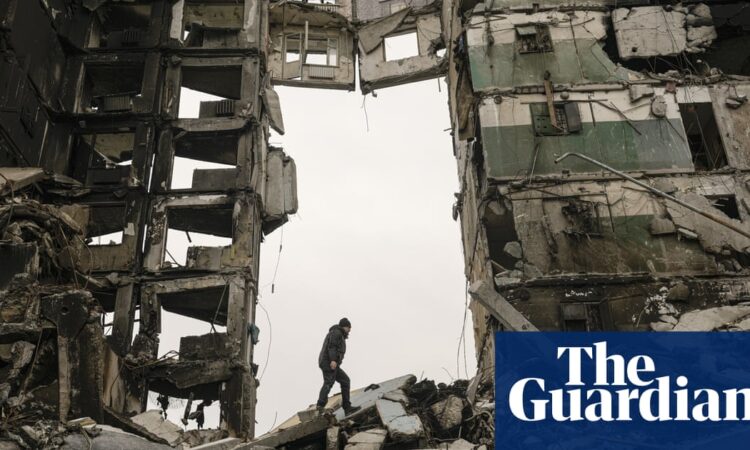
EU leaders are to take a significant step towards confiscating a potential €27bn in profit generated over the next four years by Russian state assets frozen in Europe to help fund the war effort in Ukraine.
Officials at the European Commission are poised to put forward what they believe is a legally robust proposal to be considered by member states, possibly before a meeting of prime ministers in Brussels next Thursday.
About $300bn belonging to the Russian central bank has been frozen in the west, largely in foreign currency, gold and government bonds. About 70% of these are held in the Belgian central securities depository Euroclear, which is holding the equivalent of €190bn.
Deposits held in Europe are likely to generate between €15bn and €20bn in after-tax profits between now and the end of 2027, the end of the EU’s current financial cycle, depending on the evolution of global interest rates, a senior EU official said.
This year they are expected to generate between €2bn and €3bn in profits, depending on potential interest rate changes – money that could then go straight to Ukraine.
While officials are hopeful of an agreement on seizing the profits, they do not expect a deal yet on how the money should be used, because some states are against using it to fund Ukraine’s military, preferring that the cash be spent on reconstruction and humanitarian efforts.
Ireland, for example, is bound by neutrality through longstanding foreign policy, but it contributes funds to Ukraine on condition that the money is spent on “non-lethal” purposes such as clearing landmines.
Sources say the European Commission will not offer options at this time in relation to the use of the money. “It means they can agree in principle to use the revenues of profits but then have a further discussion on where that money can go constitutionally for every member state,” one source said.
“The process has gathered momentum and we expect the wheels will move very quickly on this once the decision is made.”
Last month EU leaders agreed that the proceeds could be held in a separate account, clearing the war for “step B”, which would be a decision that this money could be confiscated and sent to Ukraine.
The communique drafted by ambassadors for prime ministers’ approval next week is sufficiently vague. “The European Council reviewed progress on the next concrete steps towards directing extraordinary revenues stemming from Russia’s immobilised assets for the benefits of Ukraine including the funding of military support,” it states.
It is expected that some of the money will be retained in the EU as part of a defence fund against expected Russian legal retaliation in the long term.
Any agreement will put pressure on the British government to follow suit. The Russian central bank holds £26bn in the UK, and the foreign secretary, David Cameron, has joined the Ukrainian president, Volodymyr Zelenskiy, in calling for the money to be seized and handed to Kyiv.
However, the idea is being resisted by financial institutions, who fear it could undermine trust in the City of London.
after newsletter promotion
The move is likely to be met with retaliation in Moscow before and after the end of the war, and officials think some of the money should be held in Euroclear as a defence buffer for any future court costs.
“We need a significant amount in Euroclear … because Euroclear will face a lot of claims,” the official said.
Russian courts do not recognise western sanctions and could move to seize €33bn in Euroclear’s assets held in national securities in Moscow.
This week the Swiss parliament voted in favour of allowing some of the €8bn Russian assets it had on deposit to be used for reparations for damage caused by an aggressor.
There has been concern that such a move would jeopardise Switzerland’s longstanding position of well-armed military neutrality.
According to Agence France-Presse, its foreign minister, Ignazio Cassis, said: “We don’t have to blush when we talk about Ukraine on the international stage.”






